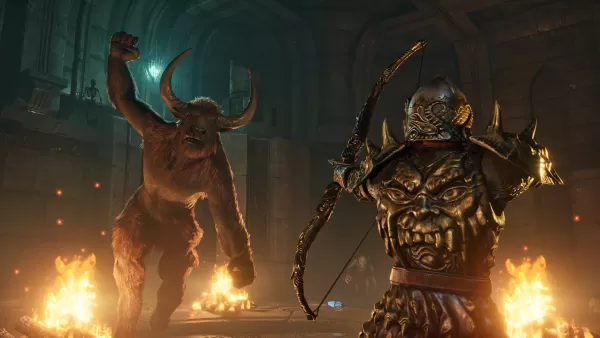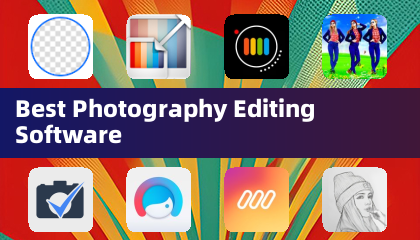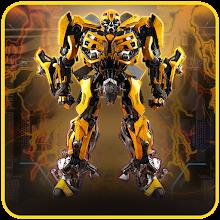When Bethesda unveiled Oblivion Remastered earlier this week, the excitement was palpable. The 2006 journey through Tamriel, once notorious for its quirky, potato-faced characters and blurry, low-resolution landscapes, has now transformed into the most visually stunning Elder Scrolls game to date. Having been conditioned by numerous HD remasters that often fall short—like the Mass Effect Legendary Edition and Dark Souls Remastered, which hardly differ from their Xbox 360 originals—the sight of the Imperial City rendered in Unreal Engine 5 with ray tracing was nothing short of astonishing. Moreover, the game has been enhanced with significant upgrades to combat, RPG systems, and a host of other details. Given these extensive changes, it's no wonder many, including myself, questioned whether this was truly a remaster or rather an outright remake.
Indeed, the sentiment is shared among fans, with many labeling it a remake. Even Bruce Nesmith, the senior game designer of the original Oblivion, remarked that "I’m not sure [the word] remaster actually does it justice." However, after spending several hours with the game, it becomes clear that despite its remake-like appearance, Oblivion Remastered fundamentally plays like a remaster.
*Oblivion* looks like a remake due to the extensive work done by Virtuos, who redesigned "every single asset from scratch." Every element you see on the screen, from trees to swords to crumbling castles, is brand new, aligning with modern graphical expectations. The game boasts beautifully textured environments, stunning lighting, and a new physics system that ensures realistic interactions with arrows and weapon strikes. While the characters are familiar from the 2006 version, each NPC model has been completely recreated. This overhaul aims not just to meet but to exceed 2025's graphical standards, making it the best-looking Bethesda Game Studios RPG yet. Had I seen it before the remaster rumors, I might have mistaken it for *The Elder Scrolls 6*.Yet, the enhancements extend beyond visuals. Combat has been significantly improved, making swordplay feel more dynamic and less like battling with a balloon. The third-person camera now features a functional reticule, and all menus—from the quest journal to dialogue and minigames—have been refreshed. The original, problematic leveling system has been replaced with a more coherent hybrid of Oblivion and Skyrim mechanics. Sprinting has finally been added, enhancing gameplay fluidity. With such comprehensive visual and gameplay upgrades, it's easy to think we're in remake territory.
However, the term "remaster" versus "remake" is often muddled in the industry. For instance, Rockstar's "Definitive Edition" of the Grand Theft Auto trilogy retains its blocky PlayStation 2-era feel with merely upscaled textures and modern lighting. In contrast, the Crash Bandicoot N. Sane Trilogy, also labeled a remaster, features entirely new graphical assets, resembling a modern game. Remakes like Bluepoint's Shadow of the Colossus and Demon's Souls rebuild games from the ground up, yet remain faithful to the originals. Resident Evil 2 redesigns the gameplay while keeping the structure intact, and Final Fantasy 7 Remake and Rebirth radically overhaul design, script, and story. These examples illustrate the lack of clear industry standards.
Traditionally, a game rebuilt in a modern engine was considered a remake, while a remaster involved limited upgrades within the original technology. However, this definition is outdated. A more fitting modern definition might classify a remaster as a graphical overhaul that preserves the original game's design, with minor gameplay enhancements, while a remake completely redesigns the game from scratch. Under this definition, Oblivion Remastered retains the correct label. It may look new with its assets and Unreal Engine 5 ray tracing, but at its core, it remains a 20-year-old game, lovingly preserved in its original essence.
 New lighting, fur, and metallic effects are just the tip of the iceberg of Oblivion Remastered's changes. Image credit: Bethesda / VirtuosThe hallmarks of its era are unmistakable: loading screens behind every door, the perplexing persuasion minigame, simplistic city designs, awkward NPC behaviors, and combat that still feels somewhat detached. Even the bugs and glitches remain, preserving the original's quirky charm.
New lighting, fur, and metallic effects are just the tip of the iceberg of Oblivion Remastered's changes. Image credit: Bethesda / VirtuosThe hallmarks of its era are unmistakable: loading screens behind every door, the perplexing persuasion minigame, simplistic city designs, awkward NPC behaviors, and combat that still feels somewhat detached. Even the bugs and glitches remain, preserving the original's quirky charm.
Recent releases like Obsidian's Avowed showcase the future of RPG mechanics, making Oblivion Remastered's elements feel dated by comparison. Yet, Oblivion retains its charm and ambition. The open fields of Cyrodiil are filled with mysteries, the dynamic goblin wars between NPC clans, and a questing structure that surpasses Skyrim's repetitive dungeons. Its old-school approach to player freedom feels refreshing amidst today's more guided gameplay experiences. However, the granular details of Oblivion—dialogue, system interconnectivity, and level design—reveal its age. A true remake would update these aspects, but Oblivion Remastered focuses on reliving the original experience.
AnswerSee ResultsVideo games often borrow terminology from other media. In film, remakes are new productions with fresh casts and scripts, while remasters enhance existing films to meet modern quality standards. The 4K restorations of *Jaws* and *The Godfather* look incredible but remain products of their time. Similarly, *Oblivion Remastered* pushes visual quality to its limits, recreating its "exterior" in a new engine, but remains a product of the 2000s at its core. As Alex Murphy, executive producer at Virtuos, aptly put it during the reveal stream, "We think of the Oblivion game engine as the brain and Unreal 5 as the body. The brain drives all the world logic and gameplay and the body brings to life the experience that players have loved for almost 20 years."Oblivion Remastered is precisely what it claims to be, and its achievements should not be underestimated. Rather than insisting it's a remake, it should be seen as the benchmark for remasters from other major AAA companies. This is the standard that Mass Effect Legendary Edition and Grand Theft Auto: The Trilogy should have met, rather than being mere cleaned-up re-releases or cynical cash grabs. Oblivion Remastered is a labor of love, looking like a remake crafted by passionate hands but playing like a remaster preserved by devoted fans.















